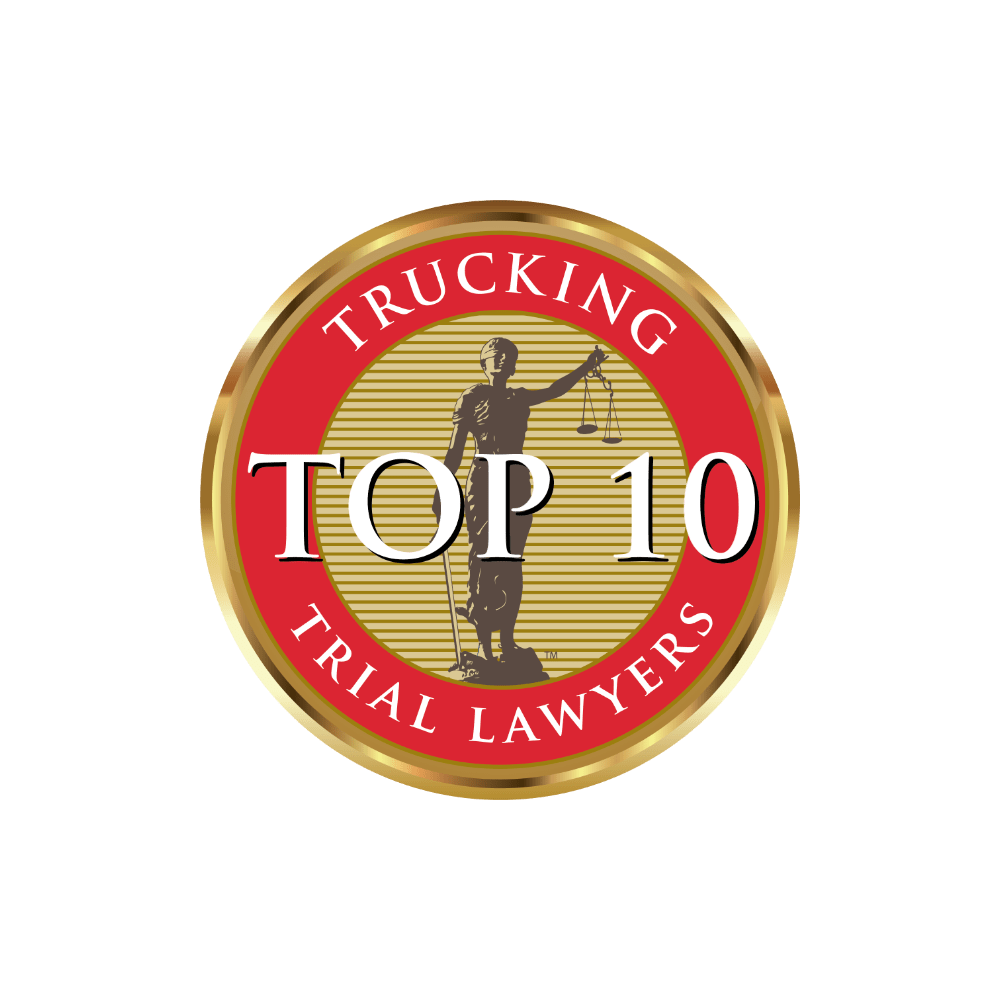Overloaded trucks pose a severe threat to drivers, pedestrians, and cyclists on Charlotte’s roads. When a truck exceeds its legal weight limit, the increased load puts excessive stress on its braking system, tires, and suspension, making it more difficult to control. This heightened risk often results in devastating crashes, causing catastrophic injuries, extensive property damage, and, in some cases, fatalities.
Unlike standard car accidents, overloaded truck accidents involve multiple layers of liability. Responsibility may not only fall on the truck driver but also on the trucking company, cargo loaders, or even the manufacturers of defective truck components. Uncovering regulatory violations and proving negligence requires a thorough investigation by legal professionals with knowledge of both state and federal trucking laws.
North Carolina follows a comparative negligence rule, meaning that if a victim is found partially at fault for an accident, their compensation may be reduced by their percentage of responsibility. This makes it crucial for victims to present strong evidence proving the negligence of the truck driver or another responsible party. A well-prepared legal strategy can make the difference between receiving full compensation or having damages significantly reduced.
This guide will explore the dangers of overloaded truck accidents, why legal representation is essential, how liability is determined, the types of compensation available, and the critical steps to take after a crash.
The Dangers of Overloaded Truck Accidents
Overloaded trucks create significant risks for everyone on the road. Exceeding weight limits places excessive stress on the truck’s braking system, tires, and suspension, making it more difficult to control and stop the vehicle safely. Common dangers associated with overloaded truck accidents include:
- Longer Stopping Distances: Excess weight increases the distance required to come to a complete stop, raising the likelihood of rear-end collisions and pileups.
- Brake Failures: Excessive weight places immense strain on a truck’s braking system, increasing the chances of complete brake failure.
- Increased Tire Blowouts: The added pressure on tires can cause them to overheat and rupture, leading to sudden loss of control.
- Higher Risk of Rollovers: Overloaded trucks have a higher center of gravity, making them prone to tipping over, especially during sharp turns or high-speed maneuvers.
- Road and Bridge Damage: Excess weight damages road infrastructure, contributing to hazardous driving conditions for all motorists.
- Cargo Spills: Overloaded cargo, particularly if improperly secured, can shift or spill onto the roadway, creating dangerous obstacles for other drivers.
Truck weight regulations exist to prevent these risks, but when trucking companies and drivers ignore safety guidelines, they put everyone on the road in danger. Victims of overloaded truck accidents deserve justice and compensation for their injuries and losses.
Why You Need Legal Representation
Overloaded truck accident claims involve multiple parties, trucking regulations, and powerful insurance companies determined to limit their financial liability. Without legal representation, victims may struggle to prove negligence and secure fair compensation.
A knowledgeable truck accident attorney can provide critical assistance by:
- Investigating the crash – Gathering key evidence such as accident reports, black box data, truck inspection records, and weigh station logs.
- Proving regulatory violations – Trucking companies must comply with state and federal weight restrictions. An attorney can determine whether those limits were exceeded and use that evidence to build a strong case.
- Identifying responsible parties – Liability may fall on multiple parties, including the truck driver, trucking company, cargo loaders, or maintenance providers.
- Negotiating with insurance companies – Trucking insurers often try to minimize settlements. An attorney ensures that victims receive full and fair compensation for their injuries, lost wages, and other damages.
- Pursuing litigation if necessary – If a fair settlement cannot be reached, an attorney will take the case to court to fight for the maximum possible compensation.
Without legal representation, victims risk being taken advantage of by insurance adjusters and corporate legal teams who aim to minimize their financial responsibility. Having an attorney by your side significantly improves the chances of securing the compensation needed for recovery.
Determining Liability in an Overloaded Truck Accident
Establishing liability in an overloaded truck accident requires a comprehensive investigation. Unlike a standard vehicle crash, these accidents often involve multiple negligent parties. Key responsible entities may include:
- Truck Driver: If the driver knowingly operated an overloaded truck, failed to check weight limits, or ignored safety protocols, they may be held responsible.
- Trucking Company: If the company pressured drivers to exceed weight limits to meet delivery deadlines or failed to enforce proper loading procedures, they can be held liable.
- Cargo Loaders: Companies responsible for loading cargo must ensure proper weight distribution and compliance with legal weight limits. If improper loading contributed to the crash, they may share liability.
- Maintenance Providers: If excessive weight contributed to a mechanical failure, such as brake malfunction or tire blowout, the maintenance provider may be responsible.
- Truck or Equipment Manufacturers: If a defective part, such as faulty brakes or weak suspension, played a role in the accident, the manufacturer could be held accountable.
To establish liability, a truck accident attorney will gather essential evidence, including:
- Truck weight logs and weigh station records to verify if the vehicle exceeded legal weight limits.
- Black box data to analyze speed, braking, and mechanical performance before the crash.
- Cargo loading documents to assess whether cargo was properly secured and evenly distributed.
- Maintenance and inspection records to determine if faulty vehicle components contributed to the accident.
- Eyewitness statements and expert testimony to reconstruct the accident and identify all responsible parties.
Holding the appropriate parties accountable is critical in securing maximum compensation for victims.
Compensation Available for Victims
Victims of overloaded truck accidents often face life-altering physical, emotional, and financial burdens. Compensation is designed to help ease these hardships and cover both immediate and long-term needs. Depending on the severity of the accident, compensation may include:
- Medical Expenses: Covers all necessary medical treatments, including:
- Emergency care at the accident scene and ambulance transportation.
- Hospital stays, surgeries, and intensive care unit (ICU) treatment.
- Rehabilitation services, including physical therapy, occupational therapy, and pain management.
- Prescription medications and medical equipment, such as wheelchairs and prosthetic devices.
- Future medical care for chronic pain, permanent disabilities, or long-term recovery needs.
- Lost Wages and Future Earnings:
- Reimbursement for income lost due to time off work during recovery.
- Compensation for reduced earning capacity if the victim is unable to return to their previous job or must take lower-paying work due to disabilities.
- Potential coverage for vocational training if the victim needs to change careers due to their injuries.
- Property Damage:
- Payment for vehicle repairs or replacement if the victim’s car was totaled.
- Reimbursement for personal belongings damaged in the crash, such as laptops, phones, or valuable possessions inside the vehicle.
- Pain and Suffering:
- Compensation for physical pain resulting from injuries sustained in the crash.
- Emotional distress, including anxiety, depression, or post-traumatic stress disorder (PTSD).
- Mental anguish caused by long-term disabilities or disfigurement.
- Loss of Enjoyment of Life:
- Compensation for victims who can no longer participate in hobbies, sports, or daily activities they once enjoyed.
- Impact on relationships with family and friends due to physical limitations or emotional trauma.
- Wrongful Death Compensation:
- Funeral and burial expenses for families who lost a loved one in an overloaded truck accident.
- Loss of financial support if the deceased was the primary wage earner.
- Emotional suffering and loss of companionship for surviving family members.
- Punitive Damages:
- If the trucking company or driver knowingly violated safety regulations, punitive damages may be awarded to punish reckless behavior and deter future misconduct.
A truck accident attorney will fight to ensure that victims receive full compensation for their medical expenses, financial hardships, and overall suffering, securing the resources they need to move forward with their lives.
What to Do After an Overloaded Truck Accident
If you’ve been involved in an overloaded truck accident, taking the right steps immediately after the crash can strengthen your case and protect your rights:
- Seek medical attention – Even if you feel fine, some injuries may not be immediately apparent.
- Call law enforcement – A police report is critical for documenting the accident and gathering official records.
- Take photos and videos – Document the accident scene, truck, road conditions, vehicle damage, and any visible injuries.
- Gather witness information – Collect names and contact details of anyone who saw the crash.
- Avoid speaking to insurance adjusters – Do not provide statements or accept settlements without consulting an attorney.
- Contact a truck accident lawyer – Legal guidance is essential in building a strong case and securing fair compensation.
How to Contact Auger & Auger for Help
If you or a loved one has been injured in an overloaded truck accident, Auger & Auger is here to help. Our dedicated team has decades of experience handling truck accident claims in Charlotte, and we are committed to fighting for the justice and compensation you deserve.
We offer a free, no-obligation consultation, and with our A&A Zero-Fee Guarantee, you won’t pay any legal fees unless we win your case. Contact us today to discuss your legal options and take the first step toward financial recovery.
Call us today or visit our website to schedule your consultation.

















